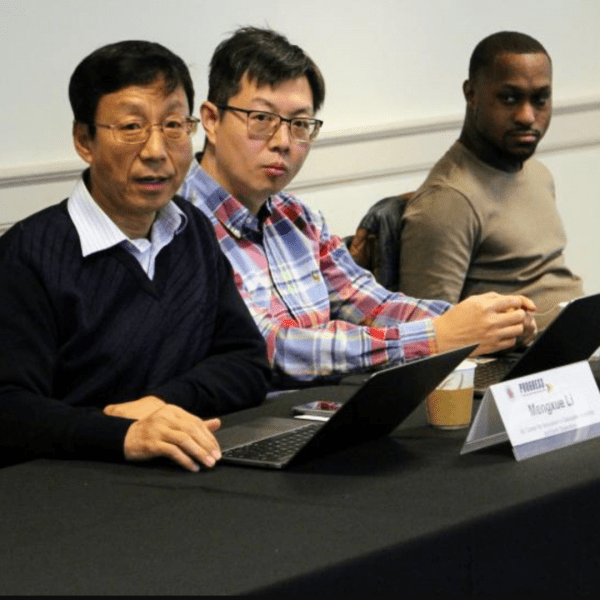Leveraging GeoAI for Gun Violence Prevention and Reduction
A GEOG project is one of three to receive a $150,000 grant from the inaugural Prevent Gun Violence: Research, Empowerment, Strategies & Solutions (PROGRESS) Initiative at the University of Maryland.
Principal Investigators: Mengxue Li and Ruibo Han
Can a growing field that combines geospatial science with artificial intelligence to generate insights, predict outcomes, and streamline decision-making be used to address gun violence?
Mengxue Li, director of the International Center for Innovation in Geospatial Analytics & Earth Observation (Geo Center) in the Department of Geographical Sciences (GEOG), and Ruibo Han, director of the Master of Science in Geospatial Intelligence (GEOINT) Programs at GEOG’s Center for Geospatial Information Science, intend to find out.
Working with the PROGRESS co-directors, Kiminori Nakamura (an assistant research professor in the Department of Criminology and Criminal Justice), and Terrance Staley (CEO of the Alliance of Concerned Men), the researchers ultimately plan to create a free web application that various user groups could utilize to help them better understand the many factors potentially influencing gun violence in their communities.
The content of the web app that would be visible to the end user would depend on their role—a concerned citizen, a gun violence researcher, a community violence interrupter, a policymaker, etc.
“By delivering customized experiences, the free web app will empower each group to play a proactive role in reducing gun violence and enhancing community safety,” explained Li.
Before the web app can be developed, however, the researchers plan to gather and integrate geospatial data from law enforcement, public health, socioeconomic, and tradition and social media sources into a comprehensive Gun Violence Data Hub.
Then, they will combine that information from regions in Maryland, Washington, D.C., and Northern Virginia with artificial intelligence (AI) and geospatial analysis to create predictive models of how all these factors interact—the basis of the web app.
“Gun violence is deeply intertwined with social, economic and spatial factors, requiring solutions that go beyond traditional methods,” Li said. “By combining advanced technology with community collaboration, this sort of work builds a foundation for evidence-based strategies that are practical, scalable and sustainable, offering hope for a future where gun violence is significantly reduced.”
Adapting the results of this project into a real-time mobile app is a future goal of the researchers, dependent upon securing additional research funding.
Main photo: Mengxue Li (left) and Ruibo Han (middle) presenting their PROGRESS project to the Alliance of Concerned Men in December 2024. Courtesy of PROGRESS.
This article was originally published by the College of Behavioral & Social Sciences.
PROGRESS Initiative and Projects
Published on Thu, 01/16/2025 - 10:23


